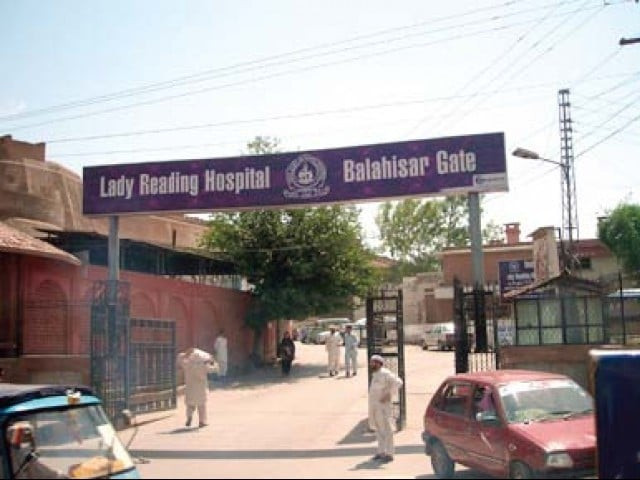Public-sector hospitals: K-P reforms have little effect on performance
Report says Medical Teaching Institution Reforms Act so far a failure

“The hospital will provide better healthcare services to the people of K-P, to cope with emergency situations by providing affordable, accessible, efficient and quality medical care,” says Arshad Javed. PHOTO: FILE
Teaching institutions were given complete autonomy under the MTI reforms act. Later, the K-P government decided to evaluate whether the move really caused a change, and thus a performance audit was conducted.
The evaluation report, placed before K-P Chief Minister Parvez Khattak, gives an independent opinion on operational, clinical and educational activities of Lady Reading Hospital (LRH), Khyber Teaching Hospital (KTH) and Hayatabad Medical Complex (HMC).
The report not only carries details on developments, but has also come up with points which have raised questions over the implementation of the MTI reforms act.
USAID launches two health projects in K-P
Infection control
According to the report, infection control committees do exist at LRH, KTH and HMC and an infection control manual, featuring polices, is also available. However, there is no formal infection control programme at the three facilities.
“A risk assessment related to infection control practices needs to be carried out at least annually,” says the report, pointing out the absence of hand-hygiene, an important component of patient safety, either in the form of alcohol-based hand-rubs or adequate supplies of soap and water.
The report also calls for a review of sterilisation techniques for instruments which were not found in accordance with the infection control guidelines.
Clinical care
While clinical care is provided at the level of understanding of individual healthcare providers, the hospitals lack consistency and uniformity, according to the report.
It states that since there was no monitoring mechanism for patient’s record completion and standardisation, practices were found to be inconsistent. Surgical consent compliance was found very well, but consent process over anesthesia and other high-risk procedures was either missing or not defined.
Staff qualification
Human resource practices were followed for all at HMC, but for staff other than doctors at KTH and LRH. For doctors, the privileging and credentialing committee was said to be in infancy at HMC, whereas KTH and LRH failed to ensure standardised procedure to authorise medical staff members to admit and to treat patients.
No privilege delineation process was found at all the three hospitals which is standardised, objective, and evidence-based.
Medication management
Medication management process at KTH and LRH requires a complete rethink, says the report, stressing the need for strengthening the role of pharmacy and therapeutics committee at the two hospitals. The same committee also exists at HMC, but its role also needs to be strengthened, it adds.
Storage conditions of medications at all the three hospitals were not found in accordance with the manufacturer’s guidelines.
Facility management
HMC was found to be in good condition in terms of infrastructure where renovation had taken place, and plans were available to improve the older parts of the facility too, says the report. It calls the introduction of the facility management concept.
KTH and LRH, however, showed signs of wear and tear and lacked preventative maintenance regime, including facility inspections and report, according to the report.
Medical education
11% of budget allocated for health in K-P
Even though the level of supervision for each tier of medical students is defined by CPSP, no documentation was available in the units to know the level of supervision for each medical trainee officer at all the three hospitals. Other data on the education programmes, like passing rates, is maintained at the appropriate institutional level.
Particularly at KTH, this implies that no monitoring mechanism exists to ensure that the medical trainee officer is involved in clinical care at the level of supervision, which CPSP allows, says the performance audit report.
Published in The Express Tribune, August 13th, 2017.













COMMENTS
Comments are moderated and generally will be posted if they are on-topic and not abusive.
For more information, please see our Comments FAQ